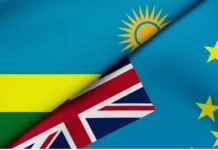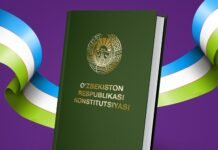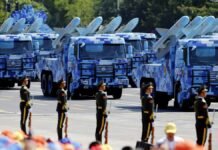Argentina’s membership in BRICS was under consideration over the last decade. This year was specifically important because of China’s invitation to Argentina to attend BRICS Summit 22.
The dominant alliance of the world’s top emerging market economies—Brazil, Russia, India, China, and South Africa—goes by the abbreviation BRICS. The BRICS system seeks to further collaboration, prosperity, security, and peace.
BRICS is an important grouping bringing together the major emerging economies of the world. BRICS is comprising 41% of the world’s population, having 24% of the world’s GDP and over 16% of share in the world trade.
BRICS countries have been the main engines of global economic growth over the years.It also seeks to create a world that is more just and equal while making a substantial contribution to the advancement of humanity.
At the first BRIC Summit, which was held in Yekaterinburg, Russia, the four countries elected leaders publicly proclaimed their membership in the BRIC economic bloc.
Argentina’s Application to join the BRICS
The 2022 summit, which took place on June 23 with China serving as the host, invited Argentina’s President Alberto Fernández. This revived the discussion surrounding this prospect, which still looks improbable.
Argentina’s potential membership in the BRICS has been discussed for more than a decade, but no meaningful effort has been made to date.
Argentina had also submitted a membership application, according to Maria Zakharova, a spokeswoman for the Russian Ministry of Foreign Affairs. Officials from Argentina could not be immediately reached for comment.
Alberto Fernandez, the President of Argentina, who is presently traveling to Europe, has recently reaffirmed his country’s intention to join the BRICS. This is not the first time an Argentine President has visited a BRICS summit.
Cristina Fernandez attended one in Fortaleza, Brazil, in 2014 at the invitation of Russian President Vladimir Putin, as did Mauricio Macri in 2018.
Following the trips made by the current President, Alberto Fernandez, to China and Russia at the beginning of the year (before the invasion of Ukraine).
The notion of Argentina legally joining BRICS has now been reintroduced by the Argentine administration and received some sporadic support among BRICS members following the visit of Foreign Minister Santiago Cafiero to India.
The present Argentine government has a foreign policy that obscures its position in several geopolitical areas. The BRICS nations coordinate their stances and initiatives inside international organizations including the UN.
Following the global financial crisis, BRICS trade and investment with low-income nations have provided a crucial support network.
To revive global economic cooperation during the current economic crisis, many countries throughout the world are looking to BRICS members as the new engines for global economic growth.
Expansion of BRICS into BRICSA
BRICS is the continuation of a tradition that was solidly established 57 years ago, in April 1955, when nations from Asia and Africa gathered at the historic Bandung Conference to flex their political muscles in the context of the Cold War and make their presence felt in the global order.
The New Development Bank, an alternative to the World Bank, and the “Contingent Reserve Arrangement,” which competes with the US-dominated International Monetary Fund, are at the core of the BRICS (IMF).
Argentina was burdened with $44.5 billion in IMF debt. It was seeking substitutes to escape this oppressive burden. Argentina will join the New Development Bank this year, according to a decision made earlier by BRICS countries.
The last step has now been taken. The BRICS will now include Argentina. Alberto Fernández, the president of Argentina, traveled to China and Russia in February 2022.
Fernández officially informed President Xi of his country’s desire to join the BRICS during their meeting. During his visit to Beijing in February, Fernández signed an agreement that officially added Argentina to the Belt and Road Initiative (BRI).
Argentina was eager to deepen its ties with China and Russia, but the nation was cautious to avoid upsetting the United States, which has long viewed South America as its “backyard.”
In fact, Argentina voted to expel Russia from the UN Human Rights Council after the United States. These zigzags, however, demonstrated that the only way to help Argentina in its fight to maintain its national independence and sovereignty is to strengthen the Eurasian alternative.
Relations between Argentina and China
China is today Argentina’s main trading partner outside South America. Since Néstor Kirchner came to power, China has taken on an unprecedented relevance in trade relations for the recent history of the South American country.
Relation between Brazil and Argentina
Under ideology, ties between Brazil and Argentina have not been the best. Argentina and Brazil compete with one another in the export of several goods, including soybeans, meat, and other commodities.
By adding a country from the same continent that is a member of the same bloc as Mercosur as well as a business rival in the key agro-industrial markets, Argentina’s membership in the BRICS could weaken Brazil’s position.
Relations between India and Argentina
Prime Minister Narendra Modi and his deputy, Subrahmanyam Jaishankar, welcomed Santiago Cafiero of the Argentine Republic during his most recent visit to India.
Cafiero also took part in the Raisina Dialogue, where Jaishankar emphasized the expansion of trade with Argentina and Latin America in particular, citing imports of soybean oil as an example.
Relations between Russia and Argentina
Since a decade ago, Vladimir Putin and the various Argentine governments have had a tight relationship.
Cristina Fernández de Kirchner visited the Kremlin after receiving a BRICS summit invitation in 2014, where she signed over twenty agreements with Putin on commerce, investment, and even nuclear energy.
It was Mauricio Macri’s turn to travel to Moscow in 2018. Along with these agreements, the president also inked one for collaborative uranium exploration and production with Putin.
Possible Alliance for Argentina
With the current geopolitical climate, it is unclear what importance joining the BRICS would have for Argentina or what that would mean for its relations with the US and Europe.
Argentina would not only significantly benefit from this, but it would also start taking part in high-level discussions with these nations, something it already does through the G20. Argentina also has contributions to make on the topic of food security.
*The writer is a Research Fellow at The Diplomatic Insight and Institute of Peace and Diplomatic Studies
**The Diplomatic Insight does not take any position on issues and the views represented herein are those of the author(s) and do not necessarily reflect the views of The Diplomatic Insight and its staff.







